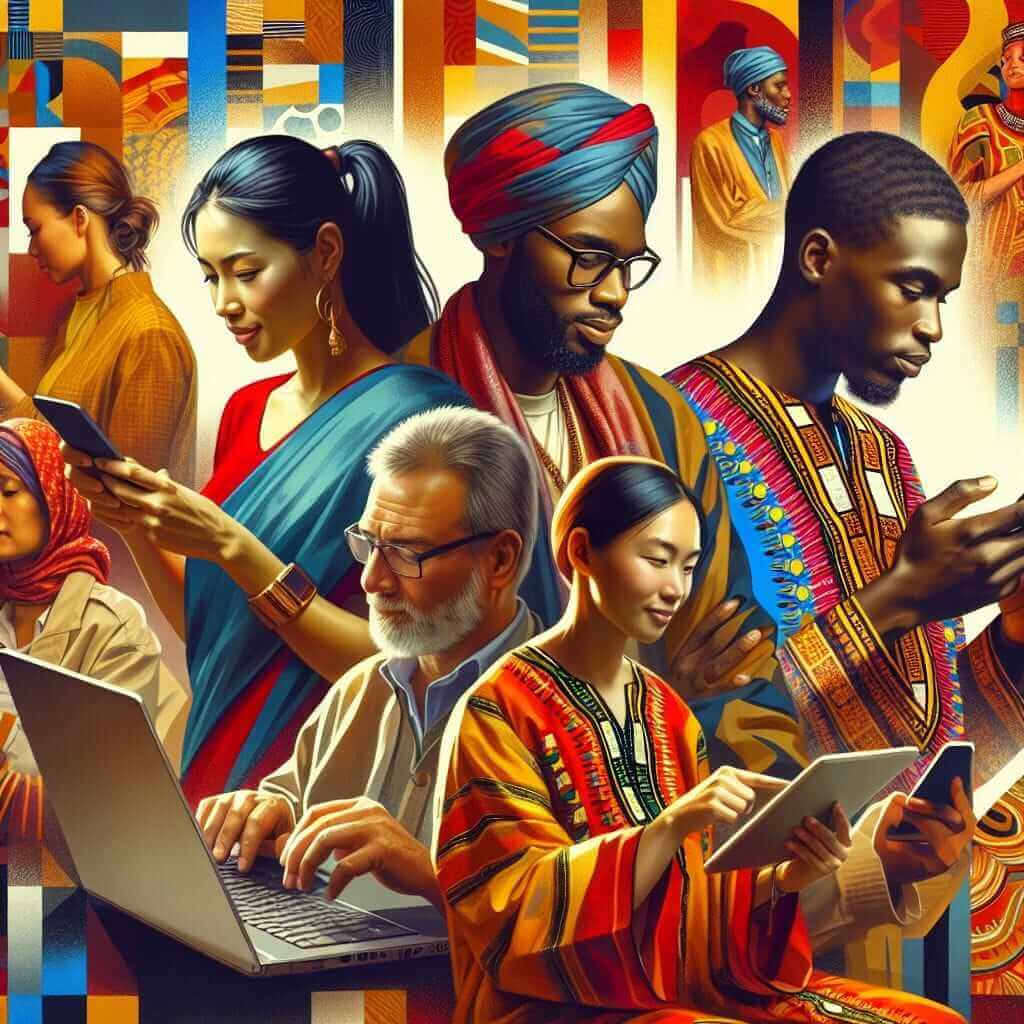The IELTS Reading section plays a critical role in assessing a candidate’s reading abilities across different text types. In recent times, the topic revolving around the influence of social media on cultural exchange has surfaced frequently in discussions and examinations. Understanding this topic and practicing relevant passages can be vital for aspirants targeting high scores in the IELTS Reading module. Given its relevance and popularity, it is likely that such topics related to cultural exchange and social media might appear more frequently in future exams.
Main Content
Practice Reading Passage
Title: The Impact of Social Media on Cultural Exchange
Social media platforms like Facebook, Twitter, and Instagram have revolutionized the way individuals and communities interact, breaking down geographical barriers and fostering rich cultural exchanges. By enabling instant communication and content sharing, these platforms have given rise to unprecedented levels of cultural interaction.
The globalization effect of social media has brought diverse cultures closer together. People now have the ability to experience and learn about different cultures firsthand by following influencers from various parts of the world. This exposure has the potential to dispel stereotypes and promote greater cultural understanding and empathy.
However, the influence of social media on cultural exchange is not solely positive. Critics argue that it also contributes to the homogenization of cultures. As global trends become increasingly accessible, there is a risk that unique cultural identities will be overshadowed by dominant cultures, leading to a loss in cultural diversity.
Additionally, the algorithms that drive social media platforms can create echo chambers where users are exposed predominantly to content that aligns with their existing beliefs and interests. This phenomenon can stifle genuine cultural exchange and reinforce cultural biases.
In conclusion, while social media undeniably plays a significant role in facilitating cultural exchange, it is essential to approach it critically, being mindful of its potential to both unify and divide.
Practice Questions
Question Type: Multiple Choice
-
What is a positive impact of social media on cultural exchange mentioned in the passage?
- A. It contributes to the homogenization of cultures.
- B. It dispels stereotypes and promotes cultural empathy.
- C. It creates echo chambers.
- D. It ignores geographical barriers.
-
What is a potential negative effect of social media on cultural exchange discussed in the passage?
- A. Breaking down geographical barriers.
- B. Promoting cultural diversity.
- C. Stifling genuine cultural exchange through echo chambers.
- D. Facilitating instant communication and content sharing.
Question Type: True/False/Not Given
-
Social media platforms allow people to learn about their own cultures firsthand.
- A. True
- B. False
- C. Not Given
-
Social media solely has a positive influence on cultural exchange.
- A. True
- B. False
- C. Not Given
Question Type: Matching Information
Match the following statements to the paragraphs in the passage:
-
The risk of cultural homogenization.
- A. Paragraph 1
- B. Paragraph 2
- C. Paragraph 3
- D. Paragraph 4
-
Echo chambers reinforcing cultural biases.
- A. Paragraph 1
- B. Paragraph 2
- C. Paragraph 3
- D. Paragraph 4
Answer Key
- B – It dispels stereotypes and promotes cultural empathy.
- C – Stifling genuine cultural exchange through echo chambers.
- B – False
- B – False
- C – Paragraph 3
- D – Paragraph 4
Common Mistakes to Avoid
When tackling reading comprehension questions like the ones above, candidates often:
- Skim through the passage too quickly and overlook key details.
- Fail to recognize the tone and purpose of the text (e.g., recognizing both positive and negative viewpoints).
- Get confused by similar options in multiple-choice questions. Practice distinguishing subtle differences and context.
Vocabulary Focus
- Homogenization (noun): the process of making things uniform or similar.
- Homogenization [ˌhɒmədʒəˌneɪʃən]: The loss of cultural diversity due to homogenization.
- Echo chamber (noun): a situation where beliefs are amplified or reinforced by communication and repetition inside a closed system.
- Echo chamber [ˈɛkəʊ ˌʧeɪmbə]: Social media algorithms can create echo chambers.
- Empathy (noun): the ability to understand and share the feelings of another.
- Empathy [ˈɛmpəθi]: Social media can promote empathy by exposing people to different cultures.
Grammar Focus
- Relative Clauses: Used to provide additional information about a noun without starting a new sentence.
- Example: Social media platforms, which have revolutionized communication, are instrumental in cultural exchange.
- Passive Voice: Used to emphasize the action rather than the subject performing it.
- Example: The phenomenon is driven by algorithms that filter content.
Conclusion
Practicing with reading passages that reflect current issues, such as the influence of social media on cultural exchange, can significantly improve your IELTS Reading score. Understand the topic, practice diligently, and focus on the details within the passages. By doing so, you will be well-prepared to tackle similar topics in the real IELTS exam.

For more practice passages and insights into the influence of technology on cultural exchange, visit our related article: The Influence of Technology on Cultural Exchange.
Tips for High Reading Scores in IELTS
- Practice regularly with diverse reading materials.
- Enhance vocabulary and understanding of complex structures.
- Focus on time management to complete passages within the given timeframe.
- Familiarize yourself with different question types and strategies to handle them effectively.